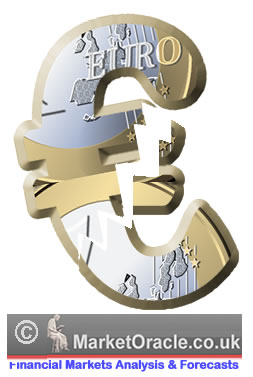Euro-zone Crisis Will Hit Russia Hard
Economics / Russia May 28, 2012 - 04:38 AM GMTBy: Pravda
The political collapse in Greece and Moody's downgrade of the rankings of 16 Spanish banks at once have led to the decline in stock indexes all over the world. In Russia, the head of the Central Bank, Sergei Ignatiev, showed an optimistic reaction to such unpleasant news. Making a speech at the government last week, the official urged everyone not to panic. According to him, Russia is prepared to the crisis much better than it was four years ago.
 Economists say, though, that there are no reasons for optimism. The country is prepared for the new wave of the crisis much worse than it was in 2008. Should something happen to the oil prices, everyone will feel the consequences very soon.
Economists say, though, that there are no reasons for optimism. The country is prepared for the new wave of the crisis much worse than it was in 2008. Should something happen to the oil prices, everyone will feel the consequences very soon.
Aleksei Ulyukayev, first deputy chairman of the Central Bank of the Russian Federation, does not believe that the world economic crisis may occur again either. He believes that Russia entered the period of high degree of volatility and is going to stay there for years. It means that the probability of local crises (sovereign debt, stock markets) is rather high. However, one should not expect a decline similar to that in 2008, Ulyukayev said.
Russian experts with the Higher School of Economics compared the state of affairs in the Russian economy in the first quarter of 2012 with the results of the first quarter of 2008. The current economic situation is worse, they concluded.
The research, which the experts conducted, showed that the state of affairs with the foreign debt was better, whereas the growth of the bank crediting was based on the financial support from the Central Bank, rather than on deposits or foreign borrowings, as it was in 2008.
There are reasons for worries, indeed. The outflow of capital from Russia in April made up $7 billion, and the process may continue in May. "In this connection, the optimism of the head of the Central Bank looks more than just strange," experts concluded.
Russia becomes more and more dependent on the oil prices, they added. The level of the oil and gas deficit remains near 10% GDP, and it can not be cut during the forthcoming years.
Even if oil prices drop moderately to $80 per barrel, the volume of the Reserve Fund lwill not let the Russian economy stay afloat for at least one year. Th budget obligations can be fulfilled only if oil prices grow by 8-9 percent annually.
Experts also said that in order to realize grandiose plans, the government needs grandiose assets. The assets can be attracted only if the investment climate in the country improves. However, investors can see presumably negative signs.
The current outflow of capital is comparable to most critical quarters in 2008-2009. they have already exceeded the inflow observed four years ago twice.
In May, the Central Bank of Russia announced the stagnation of the banking sector, which occurred during the first quarter of 2012. The banks do not have the reserves to increase their credit offers. The currency instability is also obvious. The US dollar has gained two rubles to its cost since March 2012.
However, the Central Bank does not believe that the situation is alarming. Quite on the contrary, CB officials say that there is a healthy trend in Russia, which replaced the crazy recovery growth of the recent years, when the financial sector was growing by 20, 30 and even 50 percent. Central Bank officials say that the crisis in the eurozone can pose a risk to the Russian banking system, but such risks will be moderate and acceptable.
It is possible that the Central Bank does not want to cause panic in the country: the Russian market has been extremely nervous lately.
Disclaimer: The above is a matter of opinion provided for general information purposes only and is not intended as investment advice. Information and analysis above are derived from sources and utilising methods believed to be reliable, but we cannot accept responsibility for any losses you may incur as a result of this analysis. Individuals should consult with their personal financial advisors.
Pravda Archive |
© 2005-2022 http://www.MarketOracle.co.uk - The Market Oracle is a FREE Daily Financial Markets Analysis & Forecasting online publication.



